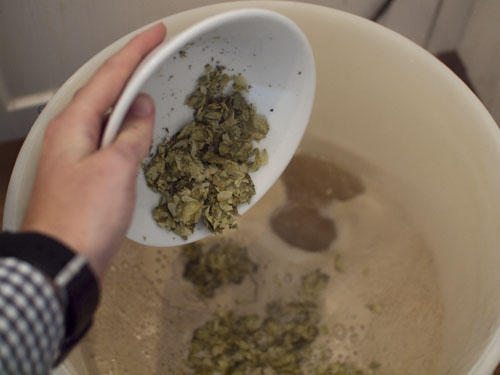Boiling the Wort

A really important reason for boiling is to do with the taste. Bitterness is key to the way beer tastes and the way we get bitterness into the beer is by boiling hops to isomerize the acids within them. The process of isomerization takes time and this is the reason why most beers will be boiled for 60 minutes or more. Hops added at the beginning of the boil contribute the most to bitterness as the rate of isomerization grows the longer the hops are boiled. After around 60 minutes isomerization slows as all of the alpha acids are used.
As well as these two factors there are a couple of other reasons a good vigourous boil is desirable, firstly the hot break. The hot break occurs during the early stages of the boil, you will notice when the wort is close to boiling large amounts of foam on top and small clumps forming in the wort. This is caused by proteins coagulating together. This together with the cold break (rapid cooling), will help to ensure the beer doesn’t have any haze when bottled or packaged. The next factor is to clean up some unwanted flavours in the beer. Di-methyl Sulfide is present in the wort and evaporates during the boiling process. This is a sulfur compound and will add a vegetal aroma to the beer if present in large enough amounts. It also occurs if the wort is cooled slowly. Although in some lagers it is desirable you can avoid this off-taste occurring by having a good rolling boil with the boiler uncovered so it can evaporate out of the wort.
